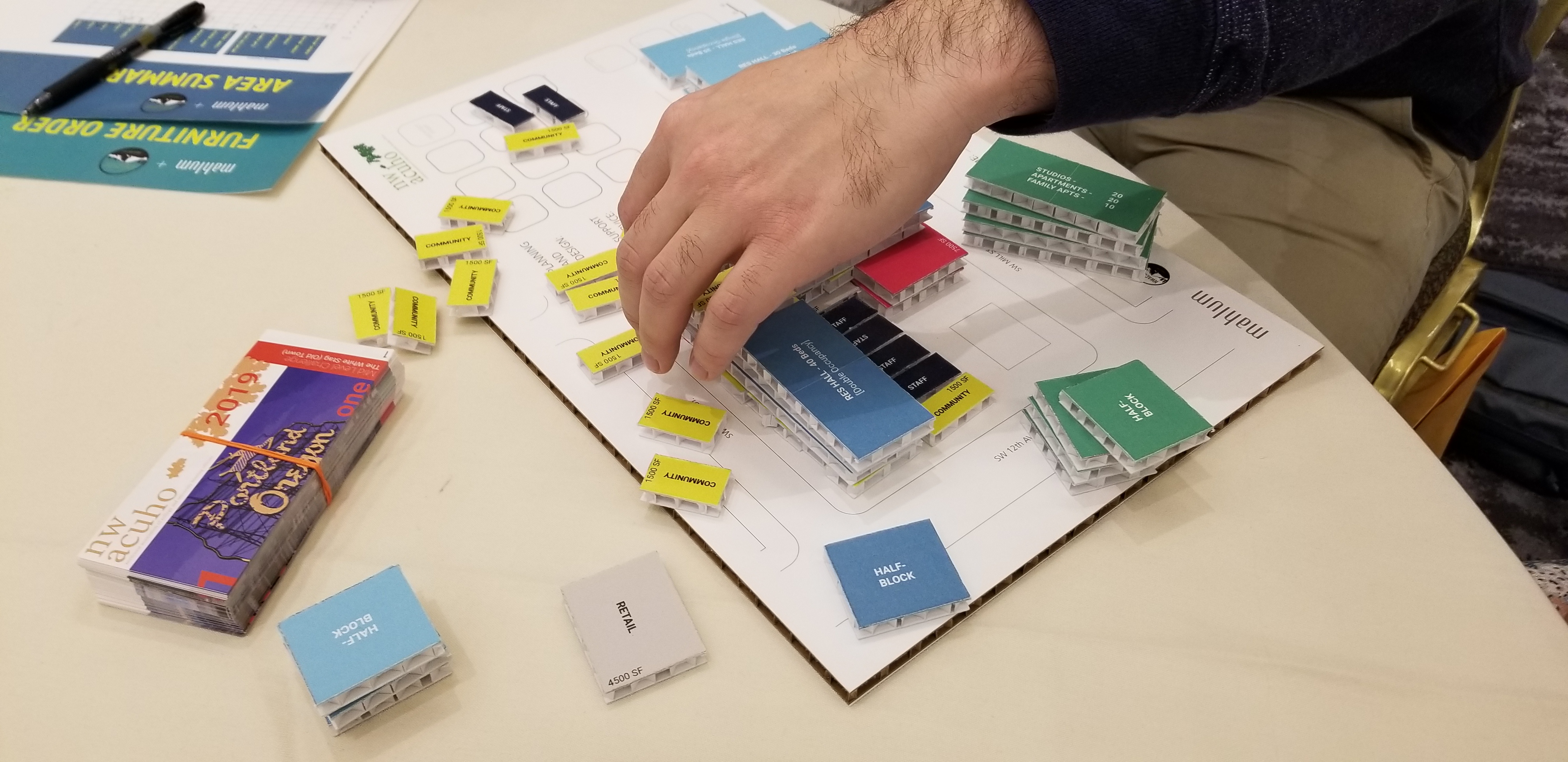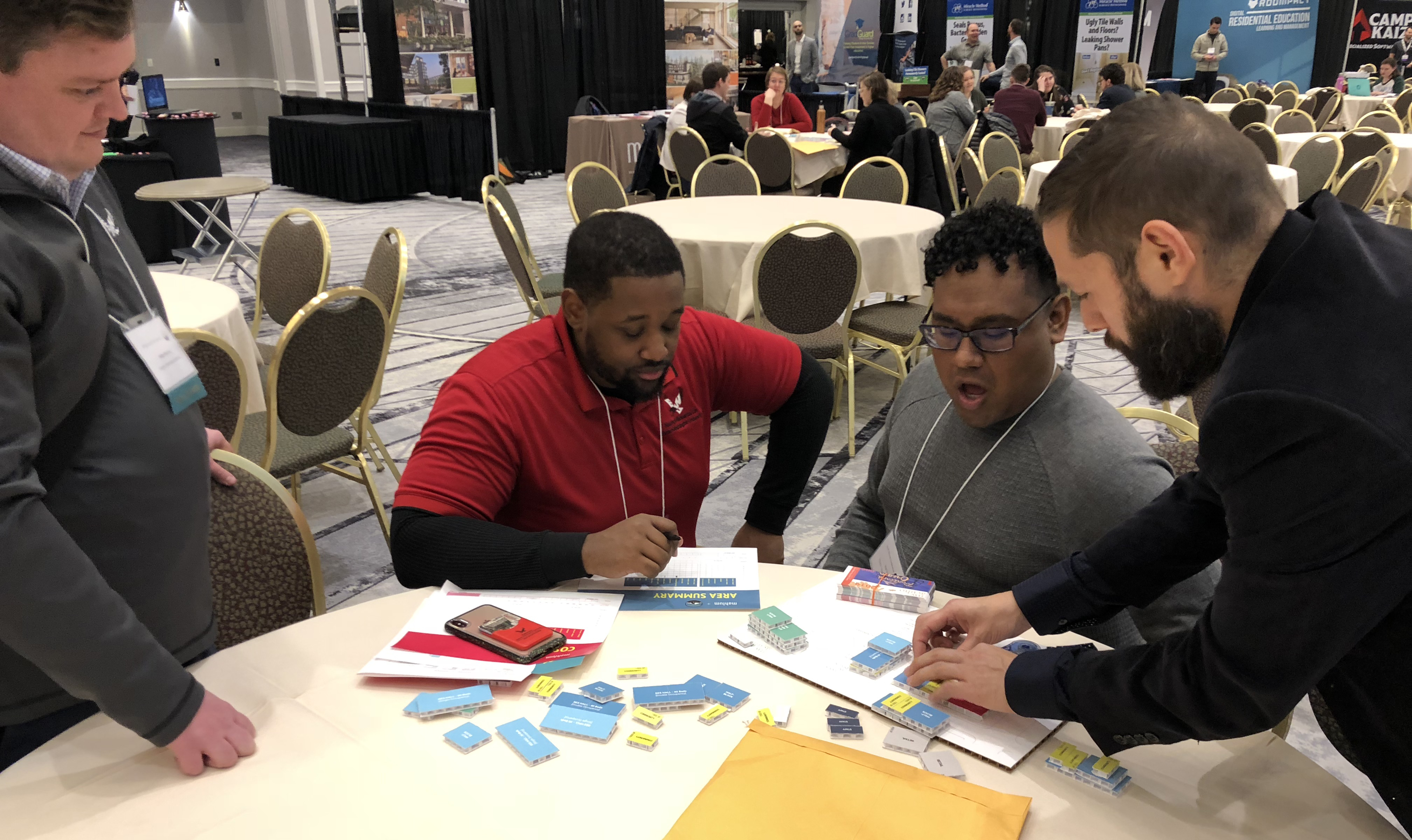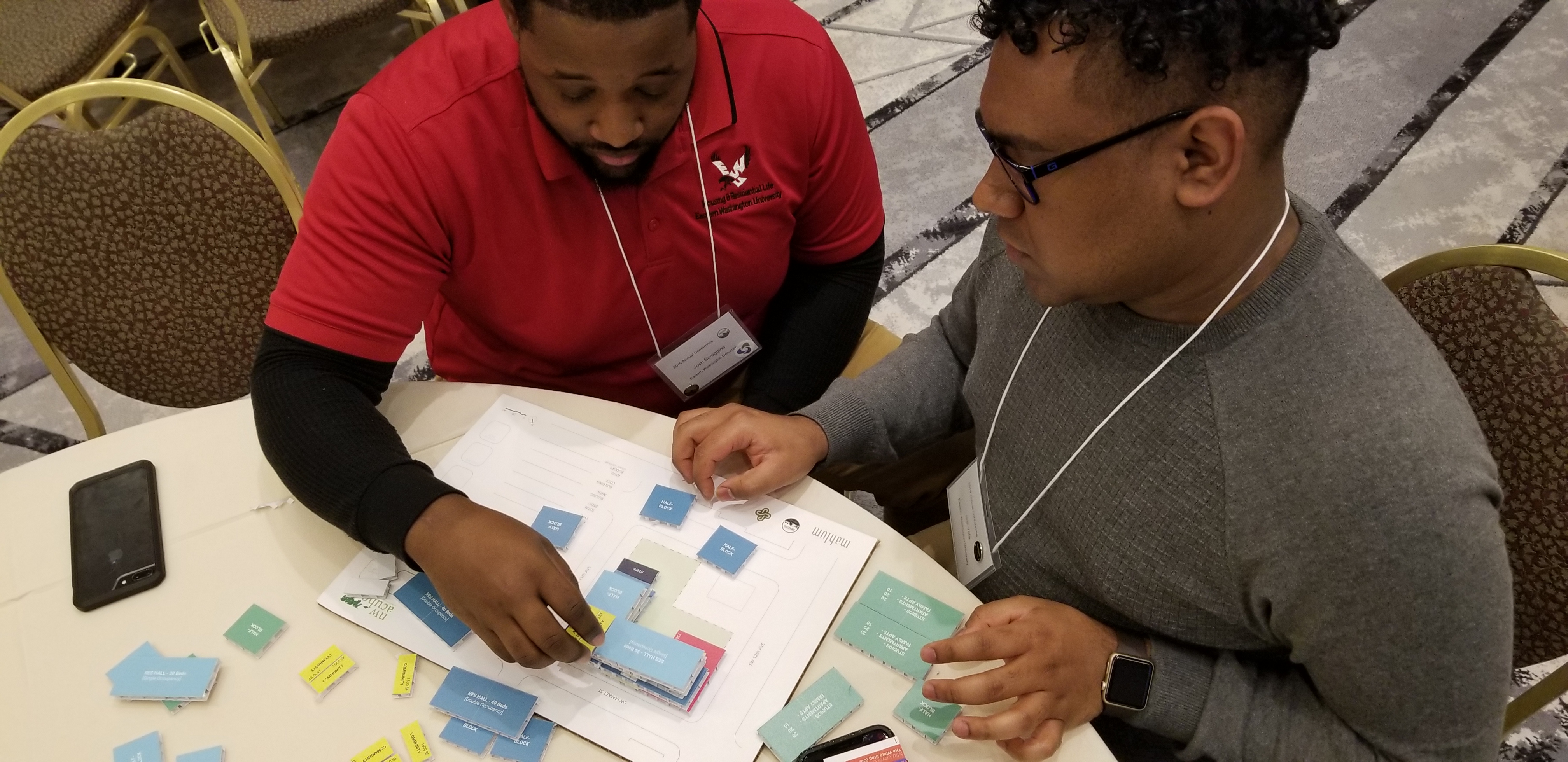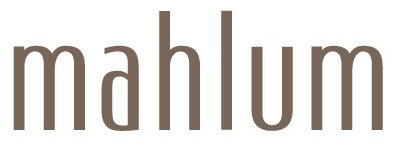Every architect has played with LEGO blocks at some point in their life – and many still do. The simplicity of modular, color-coded blocks lets one inject creativity and beauty with limited, and even then only self-imposed, constraints. So, when asked to develop the Mid-level Challenge for the 2019 NWACUHO (Northwest Association of College and University Housing Officers) Conference last February in Portland, Mahlum turned to the venerable block for inspiration and invited housing professionals to develop their ideal student community. Four teams of professionals – conference attendees representing Colleges and Universities across the Pacific Northwest – accepted the challenge.

Formatted as a game board experience, the challenge simulated the design and procurement process of a student housing project. Each team was provided a fixed budget and a site at Portland State University, and professionals were tasked with engaging exhibit hall vendors (designers, builders, vendors and service providers) as they deliberated important and realistic scenarios – following their projects from conception through day-to-day operation.
Each team was asked to start by developing a program, and Mahlum was on hand to offer advice on site and planning restrictions. With standardized housing and amenity “blocks”, each team quickly saw the potential of stacking and arranging different program components in a manner that spoke to their vision of a student community. While some teams prioritized density, others focused on themed experiences. All teams finalized their program by assembling their program massing models.

With a design concept in hand, teams were then asked to walk the exhibition hall floor. They were encouraged to first visit a contractor and engineer to verify project budgets and consider potential building systems: Walsh Construction made sure each team met their construction budget while PAE offered insights on potential enhancements, increasing awareness of the importance for planning for sustainable systems. Teams were also asked to procure other necessary services, such as furniture and operational software, by exchanging play money – “Stumps” in this case – for game board stickers.

The challenge was capped by a short presentation to a panel of jurors consisting of Mahlum, Michael Griffel (University of Oregon) and Mike Walsh (Portland State University). Each team outlined their community priorities, project program, budget, and vendor interaction. Massing models were useful in conveying the big ideas, and the jury was impressed at the level of interest, engagement and innovation in the massing/stacking process.
